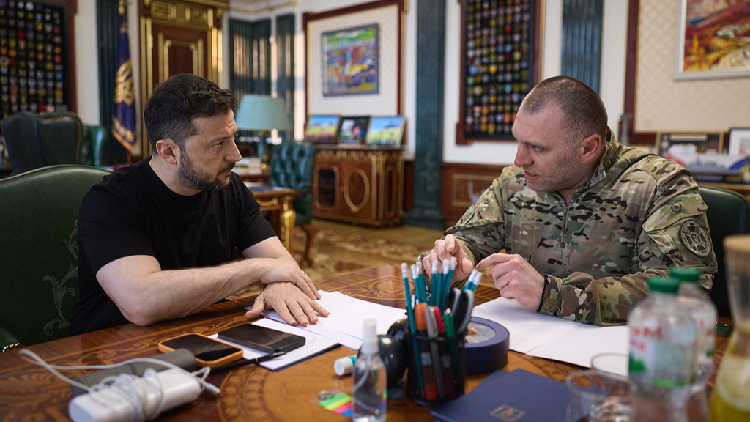Russia-Ukraine Conflict Escalates: Second Round of Peace Talks Scheduled Amid Rising Tensions
Ukraine claims large-scale strike on Russian bombers as peace negotiations loom amid escalating tensions.

The second round of peace talks between Russia and Ukraine is set to commence on Monday at 1 p.m. local time at Istanbul’s historic Ciragan Palace, according to the Turkish Ministry of Foreign Affairs. The much-anticipated negotiations come as hostilities on the ground continue to intensify, casting a shadow over hopes for a swift breakthrough.
In advance of the talks, Ukraine unveiled its latest peace proposal, laying out a multi-step process to end the conflict. The plan calls initially for a minimum 30-day ceasefire, followed by a comprehensive exchange of prisoners and the safe return of Ukrainian children reportedly relocated to Russian-controlled territories. Ultimately, the proposal envisions a face-to-face meeting between Presidents Volodymyr Zelenskyy and Vladimir Putin to resolve the most intractable issues. President Zelenskyy also announced an expanded 14-member negotiating team, headed by Defense Minister Rustem Umerov and now including senior officials from Ukraine’s military, legal, and human rights sectors.
Russia, for its part, will be represented by a familiar delegation led by Presidential Aide Vladimir Medinsky. Moscow is bringing a draft memorandum and a package of proposals focused on achieving a ceasefire, with the Kremlin expressing cautious optimism that these discussions could move both parties closer to a draft peace agreement. While the specific contents of Russia’s proposals remain under wraps, officials hinted that issues such as navigation safety in the Black Sea could feature on the agenda.
The diplomatic push comes amid a dramatic escalation in violence. On the eve of talks, Ukraine claimed responsibility for a major strike on Russian air bases, targeting strategic bombers deep within Siberian territory—a distance of over 4,000 kilometers from the front lines. According to Ukrainian sources, explosives-laden drones managed to hit approximately 34 percent of Russia’s long-range bomber fleet. President Zelenskyy hailed the operation as a “brilliant outcome,” noting the use of more than 100 drones. Meanwhile, Russian outlets played down the extent of damage, suggesting that only a small number of aircraft were destroyed and minimizing the impact of the strikes.
Simultaneously, violence erupted in Russia’s Bryansk and Kursk regions where bridges—one carrying passenger rail traffic to Moscow and another used for freight—collapsed in separate incidents, resulting in casualties and widespread disruption. Russian investigators labeled these events as "acts of terrorism," while Ukrainian officials dismissed them as possible Russian "false flag" operations designed to influence the international community ahead of the Istanbul summit.
Amid these developments, Russian forces retaliated with a missile strike on a Ukrainian training facility, reportedly causing heavy casualties. Both sides have been keen to underscore their military capabilities even as they prepare to negotiate, signaling that despite diplomatic overtures, the situation on the battlefield remains highly volatile.
As delegates arrive in Istanbul, analysts are warning of deep mistrust and divergent priorities. Russia continues to insist on broader guarantees around NATO expansion, Ukrainian neutrality, and the lifting of sanctions, seeing these as inseparable from any ceasefire deal. Ukraine, conversely, is pressing for an immediate cessation of hostilities as a precondition for further negotiations, aiming to stabilize its defenses and secure humanitarian gains before tackling larger strategic questions.
With high expectations and significant pressure from the international community, all eyes are on Istanbul as the world waits to see whether the latest diplomatic effort can halt a conflict that has sent shockwaves across Europe and beyond. However, with both capitals bracing for a challenging dialogue and little trust on either side, experts caution that the road to lasting peace is likely to be arduous and uncertain.




